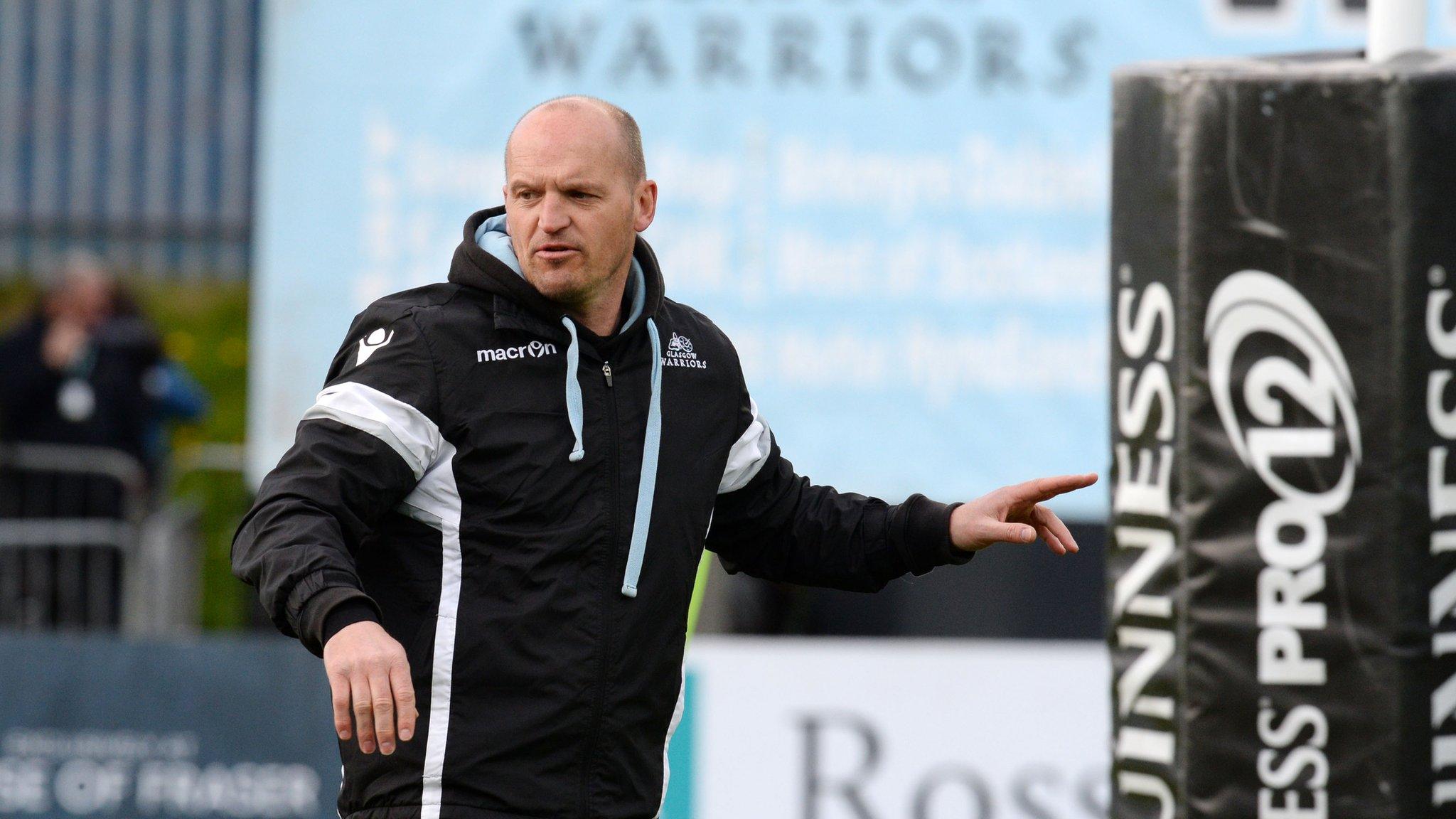Scottish Rugby chief Mark Dodson: Pro12 is being left behind by richer leagues
- Published
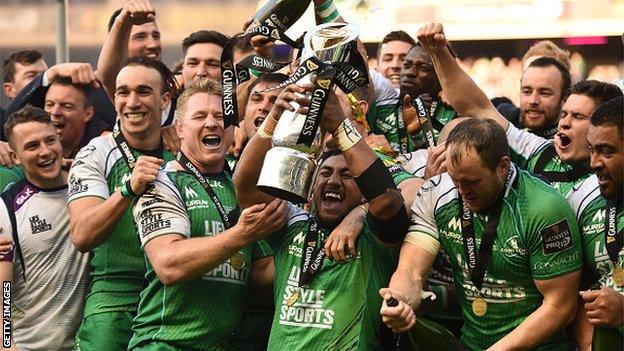
Connacht beat Irish rivals Leinster at Murrayfield to be crowned 2016 Pro12 champions
You don't tend to hear chief executives of major sporting bodies talking about "bleak prospects" and "perfect storms."
Most try to paint their organisation as a picture of nirvana, but Mark Dodson doesn't bother. To the head of the Scottish Rugby Union, there's really no point.
Dodson knows how fiendishly difficult it is to fund the game right now, from professional club rugby to the grassroots and everything in between. The Pro12 has many strengths, but a cash cow it is not.
The league makes about £12m a year in broadcast revenues. That compares with north of £40m a year in the Premiership in England and, from the 2019-20 season, £76m a year in France. The financial gap to the big leagues was always wide, but for the Scots and their Celtic cousins it's only getting wider and more troubling.
'We're struggling to keep hold of our stars'
The Celtic nations are vulnerable. TV cash continues to flood into the markets of their near-neighbours like a fast-running river giving them a vastly increased spending - and poaching - power.
Last season, Bath wanted David Denton, formerly of Edinburgh, and they cheerily coughed up six figures to get him out of his contract early. Racing 92 wanted Leone Nakarawa, Glasgow's one-time totem, and they slapped down a wad of notes in front of Scottish Rugby chiefs to get him out of Glasgow before time.
That's on top of the rock 'n' roll salary they're paying him, the kind of sum that Glasgow couldn't hope to match in their wildest dreams.
Who's the next target of the wealthy raiders from England and France? Stuart Hogg? Jonny Gray? WP Nel? John Hardie? One thing is certain - the better these guys play for their clubs, the more chance they have of getting an offer that their employers couldn't hope to match.
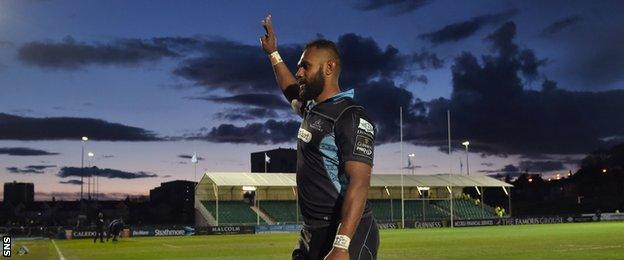
Glasgow Warriors lost one of their key men in the summer with Leone Nakarawa departing for Racing 92
"The truth is that the French and the English have stolen a march and we understand that we have to look at ourselves," says Dodson. "If we don't do something with the Pro 12, I think it's a bleak prospect.
"We're finding it very difficult to hang on to our top players. Even the people who aren't leaving are demanding more. Unless we do something different we're going to struggle."
The American dream
Scotland have, more or less, maxed-out on their revenue streams. They've sold the naming rights to Murrayfield to BT. They've got broadcast revenues that are now at the top of their cycle and it's still not enough. On Saturday, Dodson will announce record turnover of £47.3m - "an historic high" - but it does little to breach the financial gap when some of the English and French heavy-hitters have got multi-millionaires (or billionaires) at the helm "hoovering up the best players in the world."
The notion of expanding the Pro12 into America has been floated in the recent past. It's still floating. The embryonic plan would see one or two American clubs from the east coast parachuted into the league in time for the 2018-19 season.
These clubs would have coaching and player assistance from the Celtic nations in the beginning, a sharing of knowledge of personnel. Super Rugby has shown that the travel issue can be overcome with clever scheduling and enough money in the game. Quite where the Italians fit in is not clear.
It sounds fanciful, but you can't mistake Dodson's intent, driven by a need to bring more money into his organisation to avoid an exodus of talent.
"We've got to identify markets that matter and we have to be open-minded," he says. "To stay as we are isn't really an option. It's been out in the press that we will look at the eastern seaboard of North America (New York, Boston, Atlanta) to explore a new market that could provide a new team or two teams along with broadcast income. I think it's something we have to do.
"I understand why people would think it unrealistic. What we are doing now is working with individuals who are testing those markets for us. We're going to find out if it's feasible. We have to see if the big cities, and their businesses, want to invest.
"Our indications are that there is an amount of interest from American rugby and corporate America. There'll be a process that takes place over the next two to three months that will flush it out. There's a new mindset in the Pro12 now. I think it's appropriate that we do this - and that we do it with some speed.
"We don't want to leave this to 2020, we have to make this happen in a fairly short period of time or find something else. We're seriously investigating the possibility. I'd like to think it'll happen. It's the most attractive market that we can see."
'Nobody can agree on global rugby season'
Dodson also spoke of the conundrum that is the global rugby season, the vexed business of the major nations, from the northern and southern hemisphere, trying to agree on a universal Test-match calendar. Such chat has been going on for many years and there's scarcely been an inch of progress made.
"We've had a debate since 2007 and nothing happens. We meet periodically around the world.
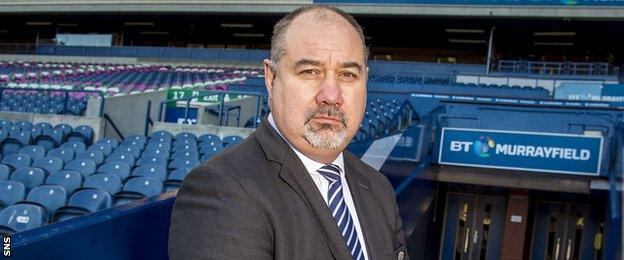
Mark Dodson says a global rugby season remains an unlikely prospect
"We find that we can't agree on very much. The northern hemisphere wants one thing and the southern hemisphere wants another.
"There's been endless conversations. We'd prefer a harmonised global season, but if we can't come to a conclusion then we'll do what is right for us. If that means we have home and away Six Nations and no autumn internationals and no summer tours then I'd be up for that.
"You'd play a Six Nations pod in November and then another in its traditional slot in the spring. It wouldn't be ideal, but I'll look at anything. If we can't get a common understanding on a global season then we have to do what is right for our teams because that's what everyone else is doing.
"If we're going to be pressured by people to change our season and we lose millions of pounds as a result then I'm not for being pushed around."
- Published21 August 2016
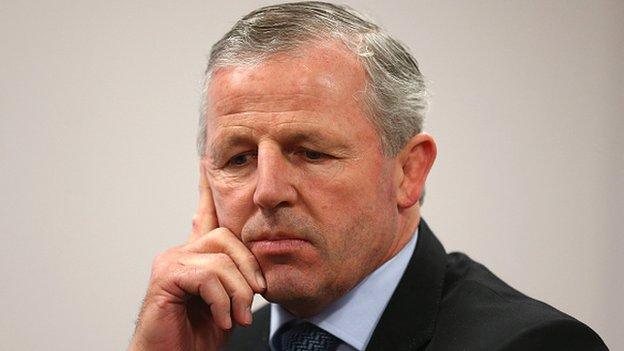
- Published19 August 2016
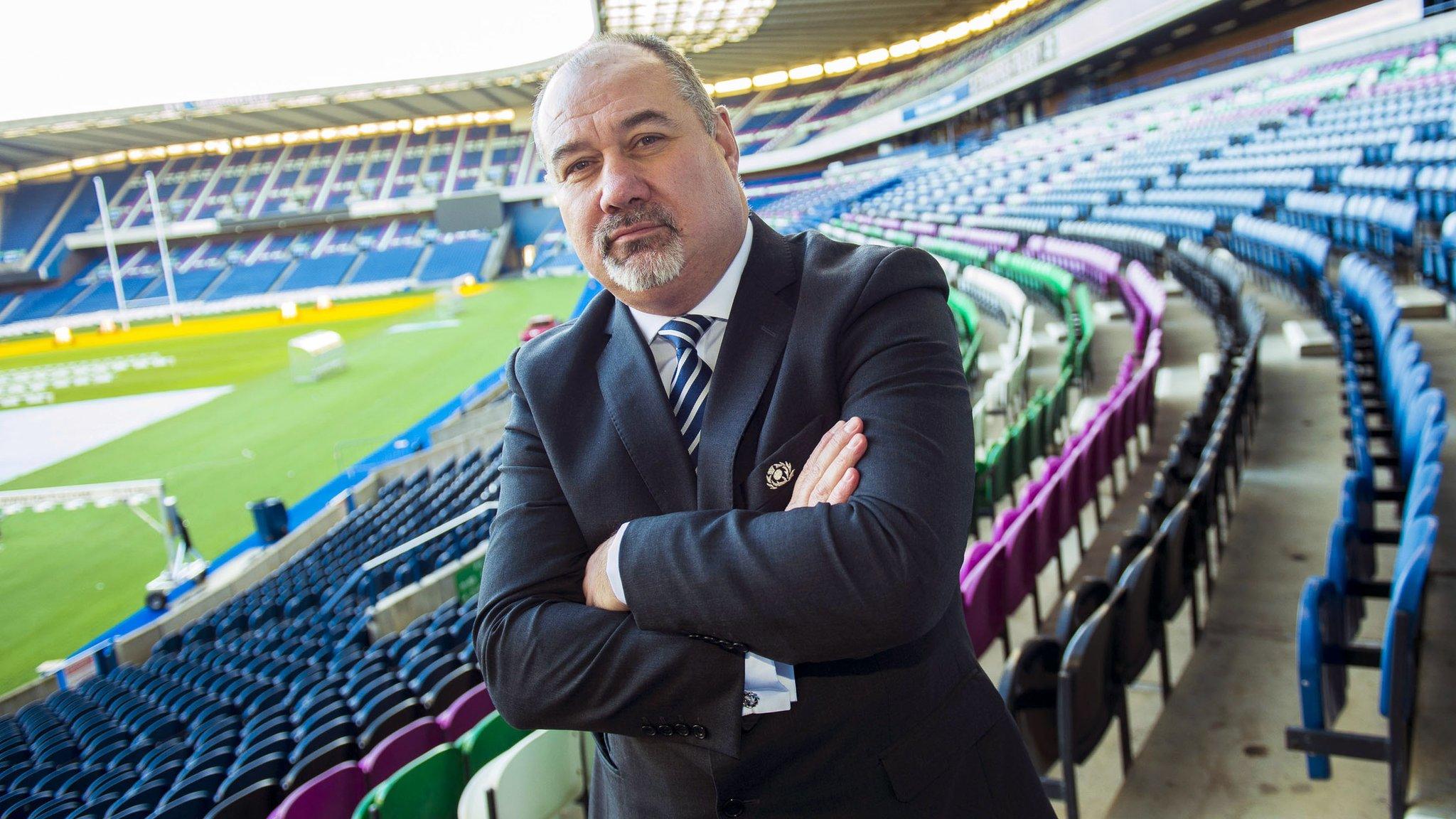
- Published18 August 2016
